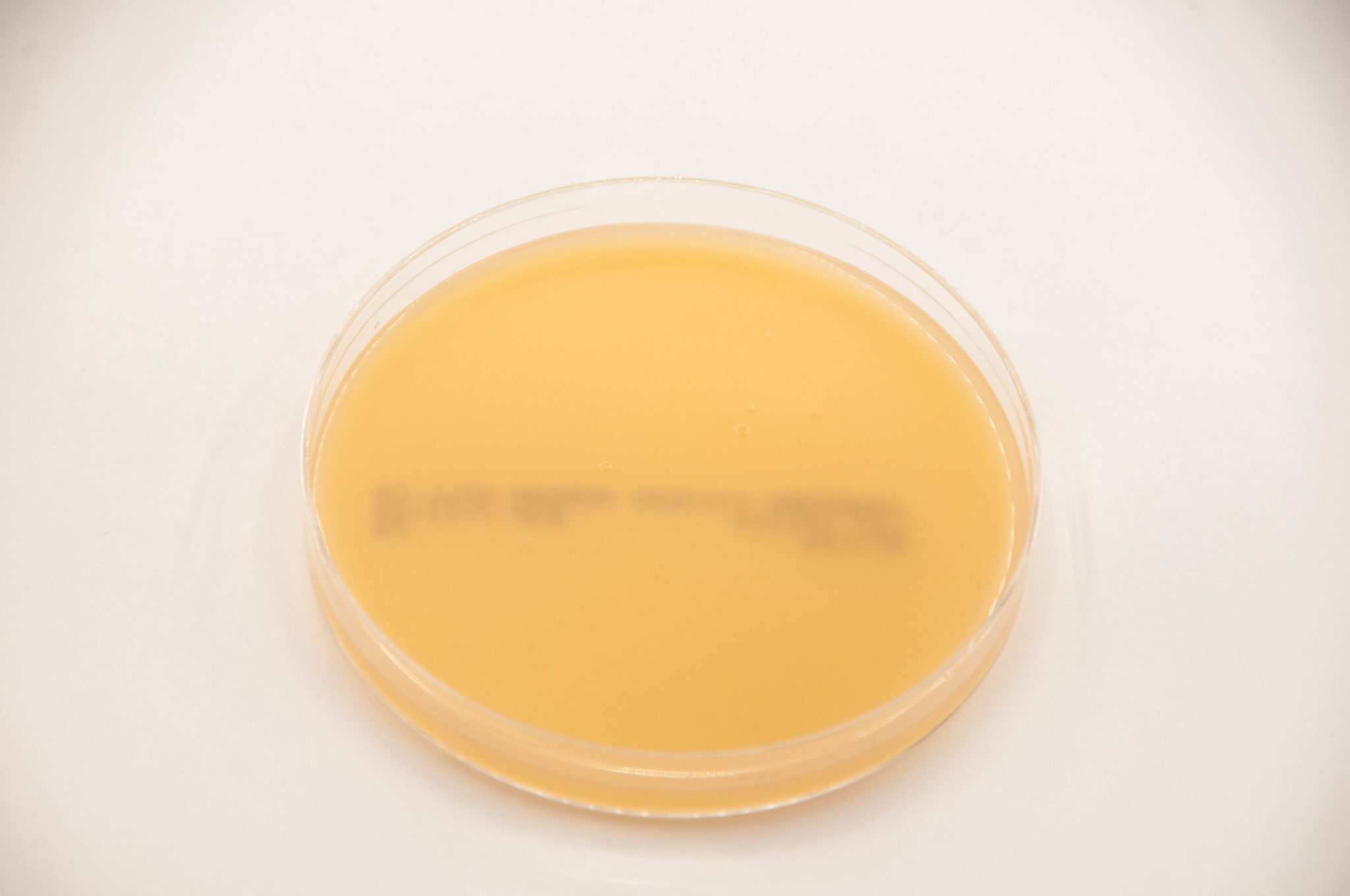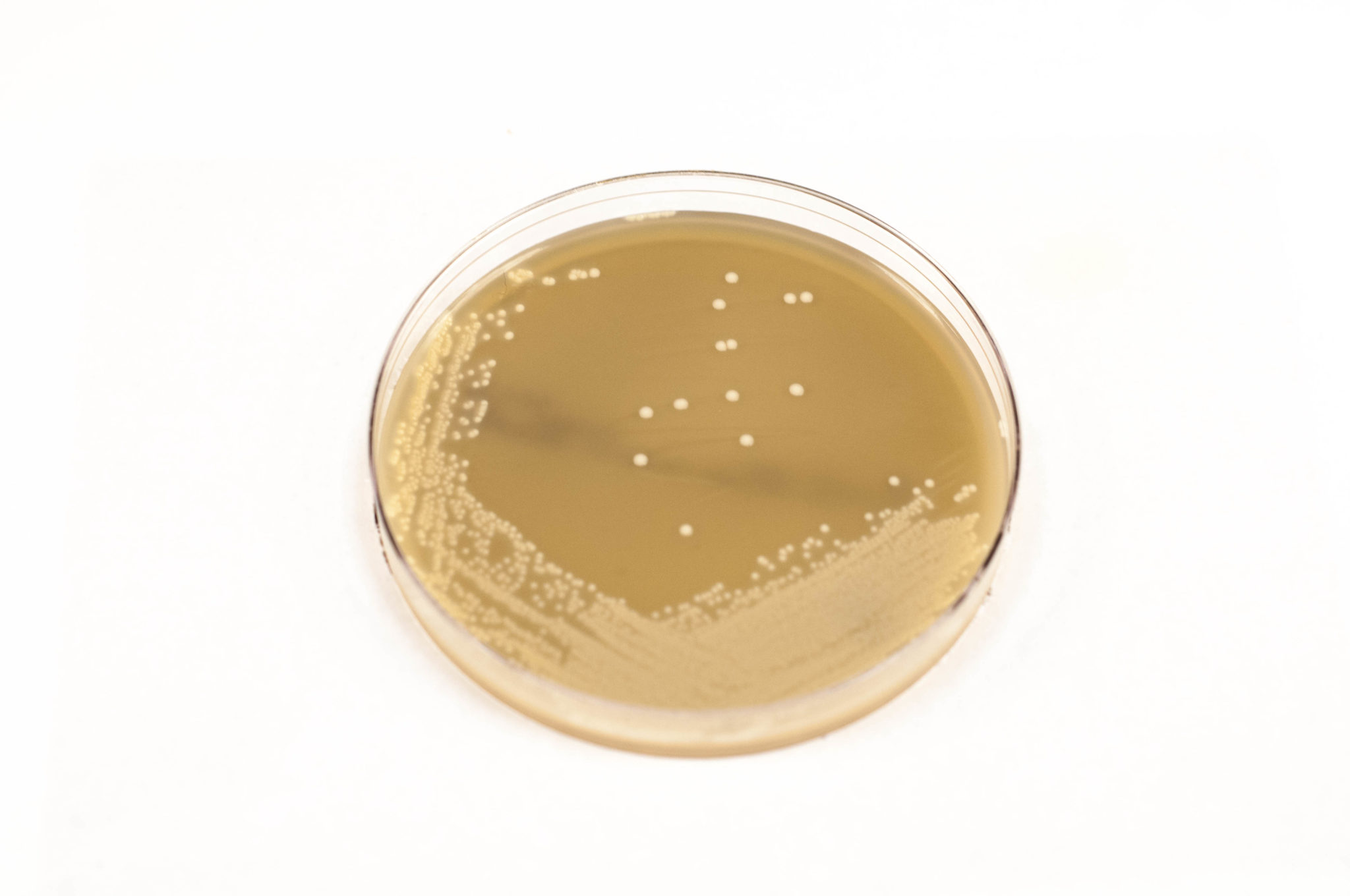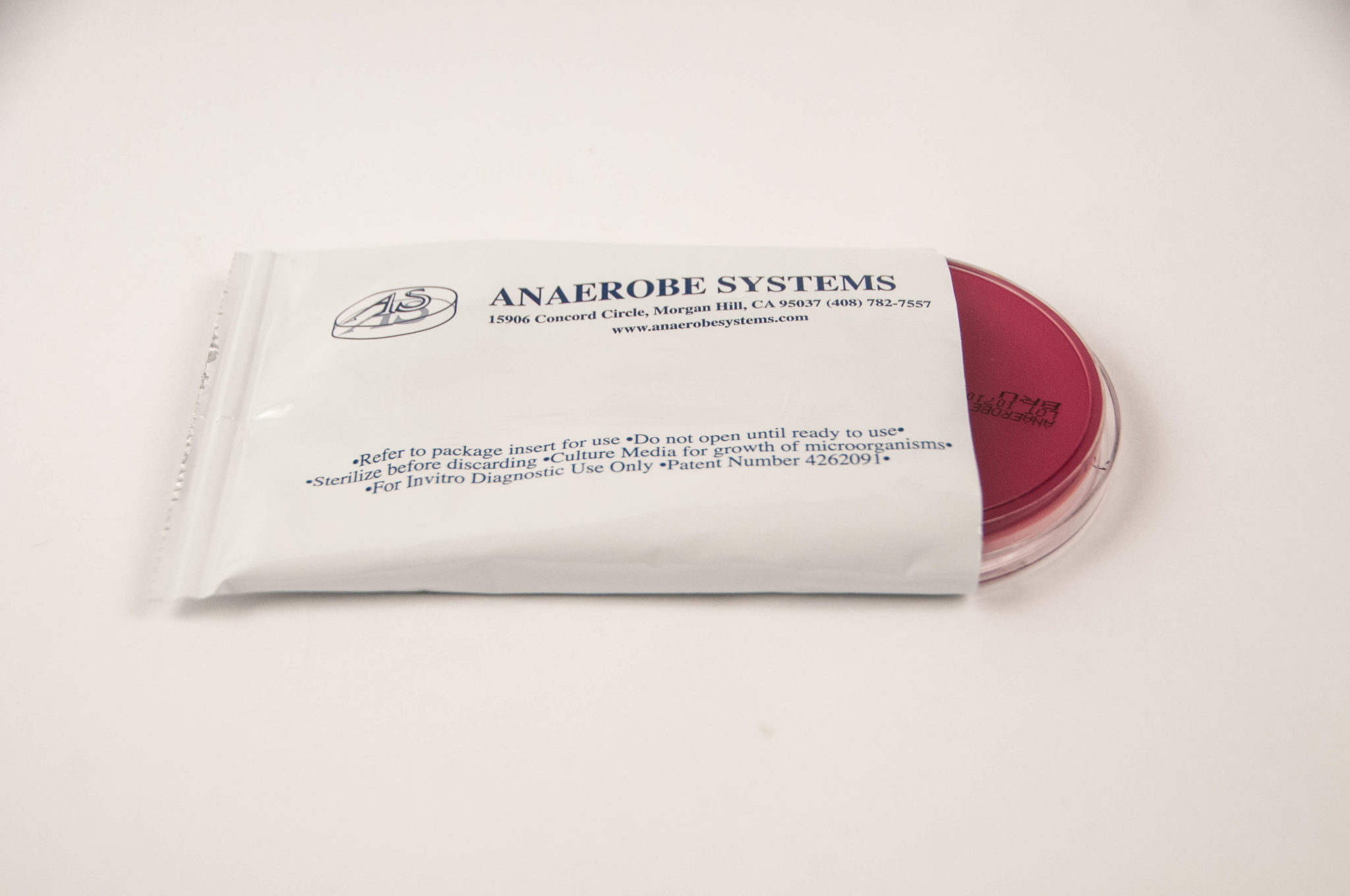Egg Yolk Agar (EYA) is an enriched, nonselective, and differential medium used for the presumptive differentiation of Clostridium spp. and other obligate anaerobes.
Egg Yok Agar – EYA
Product Description & Summary
Egg Yolk Agar (EYA) is an enriched, nonselective, and differential medium used for the presumptive differentiation of Clostridium spp. and other obligate anaerobes.
EYA agar is for the presumptive differentiation of clostridia, and other obligate anaerobes, based on lecithinase, lipase, and proteolytic activity. The nutritive base consists of casein, yeast extract, dextrose, and tryptophan. Hemin and vitamin K1 have been included to improve the growth of anaerobes. A suspension of egg yolk makes the medium differential by allowing for the detection of lecithinase and lipase activity of the microorganisms. The degradation of lecithin in the egg yolks by the organism produces an insoluble opaque precipitate that surrounds the area of growth. An iridescent sheen (“oil on water”) on the surface of the colony is observed by lipase positive organisms, due to the breakdown of free fats present in the egg yolk. Clearing of the medium surrounding the colonies is a result of proteolytic organisms. This medium is prepared, dispensed, and packaged under oxygen-free conditions to prevent the formation of oxidized products prior to use
Interpretation of Results & Limitations
EYA agar should support good growth of obligate anaerobes found in clinical infections. In addition, this media will support typical lecithinase reaction produced by some Clostridium spp., and a lipase reaction produced by some Fusobacterium and Clostridium species.
EYA agar will not provide complete information for identification of bacterial isolates. Additional test procedures and media are required for complete identification. Consult reference materials for additional information.
Quality Control
The following organisms are routinely used for quality control testing at Anaerobe Systems.
| Organism Tested | ATCC # | Results | Time | Special Reaction |
| Bacteroides fragilis | 25285 | Growth | 24 hrs | |
| Prevotella melaninogenica | 25845 | Growth | 24 – 48 hrs | |
| Fusobacterium necrophorum | 25286 | Growth | 24 hrs | Lipase + |
| Fusobacterium nucleatum | 25586 | Growth | 24 – 48 hrs | |
| Clostridium perfringens | 13124 | Growth | 24 hrs | Lecithinase + |
| Peptostreptococcus anaerobius | 27337 | Growth | 24 hrs | |
| Staphylococcus aureus | 25923 | Growth | 24 hrs | Lipase + |
| Propionibacterium acnes | 6919 | Growth | 24 – 48 hrs | |
| Clostridium difficile | 9689 | Growth | 24 hrs |
Product Storage & Shelf Life
Storage: Upon receipt, store at room temperature in original package until used. Avoid overheating or freezing. Do not use media if there are signs of deterioration (shrinking, cracking, or discoloration due to oxidation of media) or contamination. The expiration date applies to the product in its original packaging and stored as directed. Do not use product past the expiration date shown on the label.
Shelf Life: 90 days from date of manufacture.



